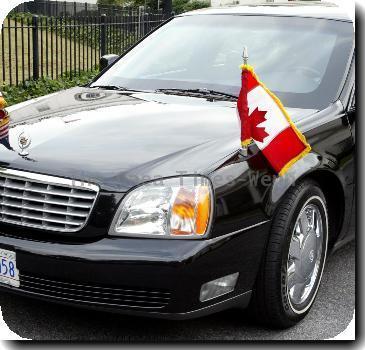Opposition calls on Pakistan’s president to give up powers, threatening political crisis
By Chris Brummitt, APSunday, November 29, 2009
Pakistan’s president told to give up powers
ISLAMABAD — Pakistan’s main opposition party Sunday demanded the president give up the sweeping powers he inherited from his predecessor, setting the stage for political turmoil just as the Obama administration wants the country to focus on fighting the Taliban.
President Asif Ali Zardari’s grip on power is increasingly under threat from opposition lawmakers and elements within the powerful military who want him to resign or divest powers to the prime minister and take on a ceremonial role. Opinion polls show him to be desperately unpopular 15 months into a five-year term.
His presidency suffered another blow Saturday when an amnesty protecting him, several key allies and thousands of other officials from graft prosecution expired. While he enjoys immunity from prosecution as president, opponents could now go to the Supreme Court to challenge his eligibility for office.
Adding to a sense of a government under siege, Taliban militants have unleashed a surge of suicide bombings in recent weeks in response to an army offensive into one of their strongholds close to the Afghan border, killing hundreds of people.
The nuclear-armed country’s Western backers had hoped Zardari and the civilian government he leads would usher in political stability after the chaos that marked the end of the nine-year tenure of his predecessor, military ruler Gen. Pervez Musharraf. Zardari took the presidency months after his wife, former Prime Minister Benazir Bhutto, was killed in a suicide bombing at the end of 2007.
A major factor in his unpopularity are the many presidential powers he took from Musharraf, who staged a 1999 military coup and resigned last year amid nationwide protests. Among the most important are the authority to fire an elected government and appoint top military chiefs.
On Friday, Zardari transferred another Musharraf-era power — the command of the country’s nuclear arsenal — to Prime Minister Yousuf Raza Gilani. The move, which had no impact on nuclear security, was seen as an attempt to allay some of his critics within the military by giving up some authority.
Shahbaz Sharif, the brother of main opposition leader Nawaz Sharif and chief minister of Pakistan’s largest province, Punjab, said Zardari should act to now to transfer the other powers to the prime minister, noting that the president had already promised to do so.
“The nation would appreciate this act,” Sharif told reporters Sunday.
Late Sunday, Zardari said he would make an announcement “soon” on changes to the constitution needed to divest those powers, but the statement gave no specifics. He already promised at least twice give up some of his authority to the prime minister since taking office.
He also took a swipe at his critics, saying the democratically elected government “was being subjected to a vicious campaign to tarnish its image by the remnants of dictatorship.”
The political upheaval comes as President Barack Obama’s administration is expected to announce this week a new strategy for defeating the Taliban in neighboring Afghanistan and on Pakistan’s northwestern border. To have much hope of success, the U.S needs a stable Pakistani government committed to fighting militants blamed for attacks in both countries.
Pakistan’s original constitution envisages a parliamentary style of government in which a popularly elected prime minister is the chief executive and the president is a ceremonial head of state. But Musharraf, who was widely despised when he stood down, accumulated powers to stay in office.
Shabaz Sharif did not repeat a remark by one opposition lawmaker on Saturday calling on Zardari to resign, neither did he call for anti-government street rallies, perhaps wary of pushing the country into chaos and paving the way for more military rule.
Some analysts have said they believe opposition leader Nawaz Sharif — whom opinion polls show to be the most popular politician in the country by far — would prefer to wait for national elections that he is seen likely as winning than join any movement to push Zardari out. Such a drive would likely require the support of the army, which has had uneasy relations with Sharif in the past.
That reluctance could help Zardari complete his term so long as he takes on a ceremonial role, analysts say, especially given that impeaching him looks all but impossible because the party he heads is the largest in parliament.
Zardari, 54, has long been haunted by corruption allegations dating back to governments led by his late wife, Bhutto.
He denies any wrongdoing. He spent several years in prison under previous administrations in connection with the allegations which he says were politically motivated.
Since taking office, the president has found himself locked in a power struggle with the powerful military, which sees defense policy and relations with India and Afghanistan as its responsibility despite being nominally under civilian control.
Military chiefs have objected to his friendly overtures toward India and his acceptance of a multibillion dollar U.S. aid bill that came with conditions they feared imposed controls over the army.
____
Associated Press writer Asif Shahzad contributed to this report.
Tags: Afghanistan, Arsenal, As-pakistan, Asia, Asif Ali Zardari, Barack Obama, Bombings, Central Asia, Islamabad, Nawaz Sharif, North America, Pakistan, Parliamentary Elections, Political Corruption, Political Issues, Political Resignations, South Asia, United States

